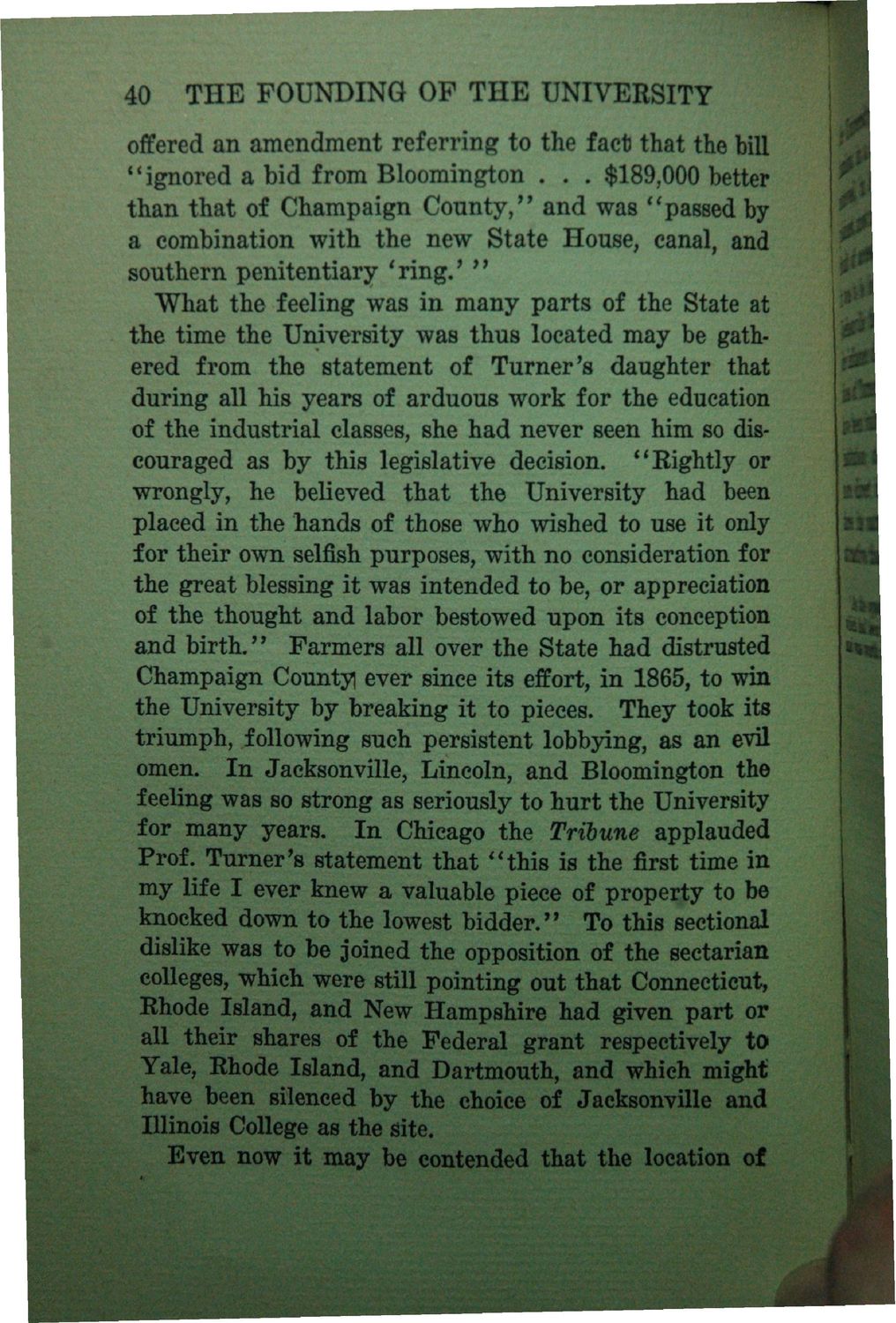| |
| |
Caption: Book - History of the University (Nevins)
This is a reduced-resolution page image for fast online browsing.

EXTRACTED TEXT FROM PAGE:
40 THE FOUNDING OF THE UNIVERSITY offered an amendment referring to the fact that the bill "ignored a bid from Bloomington . . . $189,000 better than that of Champaign County," and was "passed by a combination with the new State House, canal, and southern penitentiary 'ring.' g What the feeling was in many parts of the State at the time the University was thus located may be gathered from the statement of Turner's daughter that during all his years of arduous work for the education of the industrial classes, she had never seen him so discouraged as by this legislative decision. "Rightly or wrongly, he believed that the University had been placed in the hands of those who wished to use it only for their own selfish purposes, with no consideration for the great blessing it was intended to be, or appreciation of the thought and labor bestowed upon its conception and birth." Farmers all over the State had distrusted Champaign County! ever since its effort, in 1865, to win the University by breaking it to pieces. They took its triumph, following such persistent lobbying, as an evil omen. In Jacksonville, Lincoln, and Bloomington the feeling was so strong as seriously to hurt the University for many years. In Chicago the Tribune applauded Prof. Turner's statement that "this is the first time in my life I ever knew a valuable piece of property to be knocked down to the lowest bidder." To this sectional dislike was to be joined the opposition of the sectarian colleges, which were still pointing out that Connecticut, Rhode Island, and New Hampshire had given part or all their shares of the Federal grant respectively to Yale, Rhode Island, and Dartmouth, and which might have been silenced by the choice of Jacksonville and Illinois College as the site. Even now it may be contended that the location of
| |